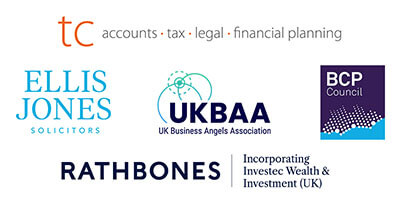An ‘angel investable’ business is a company that has characteristics that make it attractive to angel investors – high-net-worth individuals or sophisticated investors who invest their own money into early-stage businesses, usually in exchange for equity ownership.
Key characteristics that make a business angel investable:
- High growth potential: The business should operate in a large or rapidly growing market, with the ability to scale quickly and generate significant returns or is in a new or niche market where it has a ‘first to market’ advantage.
- Unique value proposition: The company must offer an innovative product, service, or business model that sets it apart from competitors and provides a compelling solution to a real problem.
- Strong management team: Angel investors often place great emphasis on the quality, experience, and passion of the founding team, as they will be responsible for executing the business plan.
- Clear exit strategy: Investors want to understand how they will potentially recoup their investment and earn a return, typically through an acquisition or IPO.
- Reasonable valuation: The company should not be overvalued, and the terms of the investment should allow for a substantial return if the company is successful.
Here’s a fictional example of an angel-investable business:
EcoCharge Solutions is a London-based clean technology startup that has developed an innovative, high-efficiency electric vehicle (EV) charging system. Their proprietary technology enables faster charging times, reduces energy consumption, and is compatible with a wide range of EVs. The founding team consists of experienced engineers and entrepreneurs who have previously worked at leading UK automotive and technology companies.
EcoCharge Solutions has secured partnerships with two major UK car park operators to install their charging systems in prime locations across the country. The UK government’s commitment to banning the sale of new petrol and diesel cars by 2030 has created a rapidly growing market for EV charging infrastructure. EcoCharge Solutions is seeking a £1.5 million investment at an £8 million pre-money valuation to expand its charging network, enhance its technology, and grow its sales and marketing teams.
In contrast, a business that is not angel-investable may have the following characteristics:
- Limited growth potential: The company operates in a small, saturated, or slow-growing market, making it difficult to achieve significant scale.
- Lack of differentiation: The business offers products or services that are not sufficiently differentiated from competitors or fail to address a clear market need.
- Weak or incomplete team: The founding team lacks the necessary skills, experience, or commitment to successfully grow the business.
- No clear exit strategy: There is no clear path for investors to recover their capital and earn a return on their investment.
- Overvaluation: The company’s valuation is too high relative to its stage of development, market potential, and risk profile, making it an unattractive investment.
Here’s a fictional example of a non-angel-investable business:
Smith’s Artisanal Furniture is a small, family-owned furniture manufacturing business based in Birmingham. They specialise in handcrafted, bespoke wooden furniture pieces, including tables, chairs, and cabinets. The company has a loyal customer base and has seen steady growth over the past five years, primarily driven by word-of-mouth referrals and local craft fairs.
The founder, John Smith, is a skilled carpenter with over 20 years of experience but has limited business management expertise. As demand for their products has grown, Smith’s Artisanal Furniture has struggled to keep up with orders due to their small workshop and limited production capacity. They are seeking a £500,000 investment to purchase new machinery, expand their workshop, and hire additional craftsmen to increase production. However, the company operates in a highly competitive market with numerous small-scale furniture makers and larger, mass-production furniture retailers.
They have not demonstrated a clear competitive advantage or a scalable business model that would enable them to capture a significant market share. Additionally, the company’s reliance on the founder’s craftsmanship and the bespoke nature of its products may limit its ability to scale production and achieve the growth potential that would attract angel investors.
Angel investors typically invest in early-stage companies with high risk but also high potential returns. Companies that lack the key characteristics of an angel-investable business may struggle to attract this type of funding.
Critical assessment
Entrepreneurs who are considering angel investment should take the time to critically assess their business and determine whether it meets these criteria. This self-reflection can help manage expectations and guide decision-making when seeking funding. It’s essential to recognise that not all businesses are suitable for angel investment, and that’s okay.
If your business doesn’t fit the profile of an angel-investable company, don’t be discouraged. There are many other sources of funding available that may be more appropriate for your business’s current stage and needs. Traditional bank loans, government grants, crowdfunding platforms, and alternative lenders are just a few examples of potential funding sources.
For businesses focused on steady growth and profitability, rather than rapid scalability, options like bank loans or revenue-based financing may be more suitable. Government grants and local business support programs can also provide valuable resources and funding for businesses that meet specific criteria or operate in particular sectors.
Crowdfunding platforms have also emerged as a popular alternative to traditional funding sources, allowing businesses to raise capital from a large number of individual investors or supporters. This can be particularly effective for businesses with a strong community presence or a compelling product or service that resonates with a specific audience.
Ultimately, the key to securing the right funding for your business is to have a clear understanding of your business’s strengths, weaknesses, and potential, and to explore a range of funding options that align with your goals and needs. By doing so, you’ll be better positioned to find the support you need to grow and succeed, whether through angel investment or alternative funding sources.




